Krensavage Commences Solicitation to Elect Four Highly-Qualified Director Candidates at RTI Surgical's 2016 Annual Meeting and Delivers Letter to RTI Surgical Shareholders
Urges RTI Surgical Shareholders to Enhance the RTI Board by Voting the GREEN Proxy Card to Elect Krensavage's Independent and Highly-Qualified Director Candidates -- Jeffrey D. Goldberg, Darren P. Lehrich, Mark D. Stolper, and Frank R. Williams Jr.
NEW YORK, April 26, 2016 /PRNewswire/ -- Krensavage Asset Management LLC, a 6.0% shareholder of RTI Surgical, Inc. (NASDAQ: RTIX), announced today that it has filed definitive proxy materials with the Securities and Exchange Commission in connection with its solicitation to elect four independent and highly-qualified director candidates to RTI's board at the May 26, 2016 annual meeting and has delivered a letter to RTI shareholders.
The full text of Krensavage's letter to its fellow shareholders follows:
We Demand Real Change at RTI Surgical
Vote GREEN to Hold Management and the Board Accountable for Value Destruction
Vote GREEN to Install Highly-Qualified Independent Directors
Vote GREEN to Reject RTI's Flawed Director Selection Process
Vote GREEN to Bolster a Stock that Trades at Less than 50% of Intrinsic Value
April 26, 2016
Dear Fellow RTI Surgical Shareholders:
Krensavage Asset Management LLC urges RTI Surgical Inc. shareholders to hold RTI management and the board accountable for years of value destruction by voting the GREEN proxy card to elect Krensavage's slate of four highly-qualified, independent director nominees at RTI's May 26, 2016 shareholder meeting.
We believe a vote for Krensavage's highly-qualified nominees would send a message that shareholders reject mismanagement that has depressed the value of RTI shares more than 70% since the company went public in 2000. The board has shirked its fiduciary responsibility by retaining Brian K. Hutchison since 2001 despite the company's poor performance, undermining a valuable portfolio of medical technology.
RTI has dropped approximately 70% since its initial public offering at $14 a share. Meanwhile, the Russell 2000 total return index returned more than 180%.1
We are confident that our director nominees would buy shares at market prices in efforts to begin aligning management interests with those of all shareholders, including those who bought stock with their own money instead of receiving them solely via equity awards and grants.
We believe our director nominees have the experience, track record and qualifications necessary to work with RTI management and other board members to curb costs, focus on RTI's most-attractive assets, restore cash flow and consider the sale of orphan assets as well as the entire company, which trades at less than half of its true value.
Sources: The S&P 500 Health Care Equipment Index data is taken from us.spindices.com; The NASDAQ Composite Total Return data is taken from www.google.com/finance; The RTI Surgical data is taken from NASDAQ.com.
Our fight for all RTI shareholders follows RTI's seemingly flawed review of our proposed independent director nominees. RTI rejected our efforts to revive the company and instead proposed three alternative directors chosen by a nominating committee with allegiance to the status quo.
The nominating committee (the committee that proposes and evaluates new directors to RTI) comprises three members who appear to be Hutchison board buddies: Former chairman Dean H. Bergy overlapped with Hutchinson in the 1990s at Stryker Corp. and Peter F. Gearen, a retired orthopedic surgeon, has served on RTI's board since 1998 and alongside Hutchison since 2001.
Even the third member of RTI's nominating committee, Curtis M. Selquist, apparently embraces the board-buddy mentality even though he represents a firm, Water Street Healthcare Partners, that ranks as RTI's largest shareholder.
Selquist, a former Johnson & Johnson executive, helped tap Nicholas J. Valeriani as one of three new directors RTI proposes for the May 26 meeting. Valeriani, a 34-year Johnson & Johnson veteran, overlapped with Mr. Selquist as part of Johnson & Johnson's senior management team. Furthermore, although Mr. Valeriani boasts a seemingly wonderful resume, he serves on the board of Roka Bioscience Inc. with another RTI director nominee, Paul G. Thomas. Thomas is Roka's chief executive and founder. These questionable ties and allegiances, that we believe helped torpedo RTI, now seem to persist under Selquist's direction.
Krensavage, whose ownership of 3,447,090 million shares of RTI gives it a 6.0% stake, was naïve to think RTI would embrace shareholders after failing to represent their best interests for years. The 2016 meeting presents the first opportunity for shareholders to elect the entire board other than the Water Street designees. It previously had thwarted shareholders with a staggered board. In December, 2011, it resisted efforts from a dissident group seeking to improve corporate governance.
RTI's initial rejection of proposed Krensavage director John S. Watts underscores the capricious process by which RTI chooses its directors. The nominating committee first declined to interview and consider Watts for a director position after it determined that Watts had served on boards of Water Street's portfolio companies. Subsequent to this, Mr. Watts withdrew as one of our nominees after concluding any attempt to put him on a slate would jeopardize his relationship with Water Street.
After the nominating committee's rejection of Watts's candidacy and his withdrawal from our slate, RTI subsequently volunteered to install Watts as a director in a settlement that we believe otherwise shortchanged RTI shareholders. We question why Watts transformed from an inadequate candidate when Krensavage recommended him, to an ideal board member once Water Street and RTI attempted to appease us. RTI, for the record, rejected a counterproposal from Krensavage seeking to compromise the needed change Krensavage believes is required. We should have expected that from a company that for years has seemingly treated shareholders as an inferior class.
Selquist and Water Street, in our opinion, could benefit from the experience, shareholder-oriented mindset and independence that our director nominees would bring to the board. Water Street disbanded Access MediQuip after trying to nurture the medical device company for nine years. Another Water Street company, Physiotherapy Trust, went bankrupt in 2013 after Water Street sold the outpatient physical therapy provider in a leveraged buyout in 2012. It faces litigation from the sale.
RTI Surgical: "A Higher Standard" of Shareholder Disappointment
Source: RTI Surgical filings
We believe the departure of three RTI directors since Krensavage launched its campaign to rescue the company, represents an acknowledgement of RTI's poor performance, bungled acquisitions and inferior corporate governance.
Since the company went public in 2000, it has produced a cumulative loss of $235.5 million. Free cash flow, which we define as operating cash flow less capital spending, amounted to negative $68 million.2 RTI generated positive free cash flow in four of the past 15 years. It burned almost $37 million in the past three years.
Source: RTI Surgical filings
Poor cash flow reflects failed product launches and bloated expenses as evidenced in the company's April 1, 2016 proxy statement. It discloses that RTI missed each of four 2015 goals set by its compensation committee after missing all three of 2014's goals.
The most stunning shortfall is the company's failure to hit its $27 million targeted cash flow. It instead generated cash flow of $9 million in 2015, its third-consecutive year of subpar results. In 2014, it achieved cash flow of $6.9 million instead of its target of $26 million. In 2013, it burned $4.5 million of cash instead of achieving its target of $17.2 million of positive cash flow.
RTI's other three 2015 missed targets are sales of the three "focused" products as well as overall revenue and operating margin. Yet RTI's top-four executives each received raises for the second-consecutive year. Management is getting its money's worth from its compensation consultant.
Poor Capital Allocation Destroys Value
RTI's board has failed to supervise capital allocation, allowing its cash to dwindle and debt to rise. The company spent $391 million on the acquisition of Pioneer Surgical Technology Inc. and Tutogen Medical Inc. Yet RTI's enterprise value stood at $365 million on April 22, 2016 according to Bloomberg.
During a July 2013 conference call to tout RTI Surgical's $130 million purchase of privately held Pioneer, CEO Hutchison said he expected Pioneer's revenue to grow at least 10% a year. The combined company, he said, had pro-forma revenue of $263 million in the year ended March 2013. In fact, surgeons who owned shares of Pioneer, disappointed with the sale price, reduced orders of Pioneer's medical devices. RTI's revenue in 2014 amounted to $262.8 million.
The Pioneer debacle pales in comparison to RTI Surgical's $261 million purchase of Tutogen Medical in February of 2008. The company paid roughly 5 times revenue and 75 times operating income for a provider of tissue for repair of bone and teeth. Within 10 months, the company recorded an impairment charge of $103 million after the value of its equity plummeted and wrote off an additional $134.7 million in the third quarter of 2010.
Compensation Practices Defy Logic
Misalignment between the company's performance and compensation, in our opinion, undermines management's ability to address RTI's challenges. Despite RTI's prolonged underperformance, management has reaped undue rewards at the expense of RTI shareholders.
A lack of insider ownership aggravates the problem. Director Gearen, for example, has failed to purchase a share of stock on the open market for at least a decade, according to our search of his public filings. Insiders own roughly 6% of the company, almost entirely granted from their service as executives or directors of the company. We believe this represents both a lack of confidence in the company to engage in meaningful share purchases and a misalignment of interests with shareholders.
In the last 10 years, executives and directors have earned more than $40 million. For 2014, CEO Hutchison earned $1.29 million, including $550,000 in salary, while the company reported a $417,000 loss for common shareholders.
RTI's proxies depict a troubling chronology:
2014 - After withholding executive bonuses for 2013, the board awarded cash bonuses for 2014, indicating management met its goal by acquiring Pioneer.
2012 - The board awarded $1.29 million in cash bonuses, including $478,000 to Hutchison. The payments followed a 0.3% increase in net income from 2011. Total director and executive compensation for 2012 amounted to 64% of 2012 net income.
2011 - The board awarded $1.1 million cash bonuses to the five executives after a 1.2% increase in revenue from 2010. The cash bonuses amounted to 60% of the increased revenue.
2008 - Management hit its performance targets and earned discretionary bonuses with the help of the Tutogen merger as the board apparently ignored impairment charges. RTI Surgical shares dropped 68% in 2008.
Source: 2014 Proxy Statements for each individual company
Since December 2013, RTI executives & directors did not purchase any shares on the open market.3
Mismanagement Leaves RTI Deeply Undervalued
Inadequate management and the board's failure to provide effective oversight, in our view, leaves RTI shares trading at less than 50% of the value they might command in a takeover. The company's inventory alone, according to our analysis, is worth $4.23. A buyer might cut the company's expenses by folding RTI into its own infrastructure. An acquirer likely would have a superior platform to launch RTI's products.
Based on our analysis, RTI is worth $11.84 a share at the average gross profit of multiple 5.8 or $9.68 at the median multiple of 4.8.
Our Directors Would Help Unlock Value
We aren't demanding a sale of the company. We'd prefer to own stock worth $12 a share in three years because our director nominees helped improve performance, rather than $6 in a takeover tomorrow.
In our view, reform would begin with the removal of Hutchison and Gearen. A reconstituted, independent board would then seek to adopt a compensation plan that aligns management with shareholders. It would cultivate an ownership mentality, cut spending, focus on the most-promising products and consider the sale of orphan assets.
Our four highly-qualified, independent candidates are ideal for the job. Boasting relevant business and financial experience, they would bring a fresh perspective into the boardroom and help execute initiatives to unlock value for all shareholders.
We urge RTI shareholders to vote the GREEN proxy card to restore and enhance the value of your investment by electing the following highly-qualified nominees:
Jeffrey D. Goldberg has served as Chair of the board of Directors of MModal IP LLC, a provider of service-based and technology-based transcription, coding, and clinical documentation-improvement services to health care systems, since August 2014, and as Co-Chair of Surgical Specialties Corporation (formerly Angiotech Pharmaceuticals Inc.), which supplies blades and wound-closure devices to support the surgical suite as well as OEM products to most of the world's largest medical device companies, since May 2011. Mr. Goldberg previously served as Chair of the board of Directors of Physiotherapy Associates Holdings, Inc., a national physical therapy services company, from January 2014 until it was acquired by a subsidiary of Select Medical Holdings Corporation for approximately $400 million in March 2016. Previously, he served as Executive Vice Chair and Interim Chief Executive Officer of Quallion LLC, a lithium ion cell and battery manufacturer, from January 2012 until it was acquired by EnerSys in November 2013. Mr. Goldberg served as Vice President of Advanced Systems at EnerSys, a manufacturer of batteries for motive power, reserve power, aerospace, and defense applications, from November 2013 to December 2015. From February 2010 to November 2013, Mr. Goldberg served as President of IncuMed LLC, the technology incubator for Al Mann's development-level companies, including companies pursuing drug-device combinations to treat tinnitus and diabetes as well as advanced technologies supporting defense and intelligence agencies ("IncuMed"). He also served as General Counsel to IncuMed from October 2008 to February 2010. Prior to IncuMed, Mr. Goldberg held various executive management positions in the health care industry, including as Senior Vice President and General Counsel at Advanced Bionics Corporation, a developer of cutting-edge cochlear implant technology, from 2004 to 2008, Chief Financial Officer at Los Angeles Orthopaedic Hospital (in alliance with UCLA Healthcare), from 1994 to 1999, and Senior Management Consultant at the Doheny Eye Institute (affiliated with UCLA Healthcare), from 1993 to 1994. He also served during 1994 as a quality control executive in China for Holmes Products Corp., a subsidiary of Jarden Corporation that produces mechanical fans, air heaters, and humidifiers, and as a lawyer for each of Occidental Petroleum Corporation, from 2001 to 2004, O'Melveny & Myers, LLP, from 1999 to 2001, and McDermott, Will & Emery, LLP, from 1991 to 1993, with a focus in M&A, securities, health care regulatory, and tax-exemption. Mr. Goldberg earned his J.D. from UCLA School of Law and his A.B. with a concentration in Philosophy from Harvard College. Krensavage believes that Mr. Goldberg's extensive leadership experience, including serving as Chair of a number of companies in the healthcare and technology industries, will make him a valuable addition to the board.
Darren P. Lehrich has served as Senior Vice President, Strategy & Investor Relations of American Renal Associates, Inc. ("ARA"), a national provider of dialysis services, since July 2015. Prior to ARA, Mr. Lehrich served as Managing Director in the Health Care Providers Equity Research Team at Deutsche Bank AG, a global banking and financial services company, from May 2005 to July 2015. Prior to Deutsche Bank, Mr. Lehrich served as Managing Director and Senior Analyst covering the Health Care Services sector at Piper Jaffray & Co, a subsidiary of the investment banking and asset management firm Piper Jaffray Companies, from 2004 to 2005. He also served as a Senior Health Care Analyst at SunTrust Robinson Humphrey, Inc., an investment banking firm, from 2001 to 2004, and at ING Barings Furman Selz LLC, a securities firm, from 1997 to 2001. Mr. Lehrich began his career at Memorial Sloan-Kettering Cancer Center, where he served in practice management roles in the Ambulatory Care Division, from 1993 to 1995. Mr. Lehrich earned his MBA in Finance from the Krannert School of Management at Purdue University and a B.S. in Healthcare Policy and Administration from the Pennsylvania State University. Mr. Lehrich was Nashville Health Care Council Fellow (2015), and a recipient of the Penn State Alumni Achievement Award (2007). Krensavage believes that Mr. Lehrich's leadership experience and his depth of knowledge in healthcare and finance will make him a valuable addition to the board.
Mark D. Stolper has served as Executive Vice President and Chief Financial Officer of RadNet, Inc., a national provider of freestanding, fixed-site outpatient diagnostic imaging services in the U.S. based on number of locations and annual imaging revenue ("RadNet"), since 2004, and previously served as an independent member of RadNet's board of Directors. Mr. Stolper currently serves as a member of the boards of Directors of On Track Innovations, Ltd., a developer and marketer of contactless microprocessor-based smart card solutions, since December 2012, and Surgical Solutions, LLC, a provider of minimally invasive surgical support and equipment, since January 2015. Mr. Stolper previously served as a director of Physiotherapy Associates Holdings, Inc., a national physical therapy services company, from December 2013 until it was acquired by a subsidiary of Select Medical Holdings Corporation for approximately $400 million in March 2016. He also previously served as Chairman of CompuMed, Inc., a medical informatics and software company, from May 2007 to October 2014. In addition, Mr. Stolper served as a director of each of Alco Stores, Inc., a rural broad line retailer, from August 2014 to June 2015, Tix Corporation, a live entertainment ticketing company, from July 2011 to December 2013, and Metropolitan Health Networks, Inc., a healthcare services provider, from April 2010 until it was acquired by Humana, Inc. for approximately $850 million in December 2012. Prior to that, Mr. Stolper was a partner at Broadstream Capital Partners and West Coast Capital, Los Angeles-based investment and merchant banking firms focused on advising middle market companies engaged in financing and merger and acquisition transactions, from 1999 to 2004. He also previously served as Vice President of Eastman Kodak Co.'s Entertainment Imaging subsidiary from 1998 to 1999 and as Vice President at Archon Capital Partners, which made private equity investments in media and entertainment companies, from 1995 to 1998. Mr. Stolper began his career in 1993 as a member of the corporate finance group at Dillon, Read and Co., Inc., executing mergers and acquisitions, public and private financings and private equity investments with Saratoga Partners LLP, an affiliated principal investment group of Dillon Read. Mr. Stolper earned his B.A. in Economics from the School of Arts & Sciences at the University of Pennsylvania, his B.S. in Economics with a concentration in Finance from the Wharton School at the University of Pennsylvania and a post-graduate award in Accounting from UCLA. Krensavage believes Mr. Stolper's significant leadership, financial and accounting experience and his service on the boards of directors of publicly traded companies will make him a valuable addition to the board.
Frank R. Williams Jr. has served as Senior Vice President and Senior Managing Director of Acquisitions for Medical Properties Trust, Inc., a real estate investment trust focusing exclusively on providing capital to acute care facilities, since September 2011. From June 2008 to September 2011, Mr. Williams served as Managing Director at Barclays Capital, the investment banking division of Barclays PLC, where he managed the firm's relationships with acute care hospitals and alternate site healthcare providers. He joined Barclays Capital from The Bear Stearns Companies, Inc., an investment bank, securities trading and brokerage firm that was acquired by JPMorgan Chase & Co., where he served as a Senior Managing Director in the global healthcare group, from 1999 to 2008. Before joining the healthcare group, Mr. Williams spent several years both as a leveraged finance banker and in the M&A group focused on healthcare transactions. Mr. Williams is the Chairman of the Board of Trustees of the Colorado Outdoor Education Center, which he joined in February 2006. Mr. Williams earned his M.B.A. from Columbia Business School at Columbia University and his Bachelor's degree in History and Political Science from Southern Methodist University. Krensavage believes Mr. Williams's extensive leadership experience in the healthcare and financial services industries will make him a valuable addition to the board.
Our interests are directly aligned with the interests of all RTI shareholders. We look forward to your support at the annual meeting.
Sincerely,
Michael P. Krensavage
Krensavage Asset Management LLC
Managing Member
Vote GREEN
Krensavage proposes highly qualified independent nominees who will act on behalf of all shareholders.
Vote GREEN today to empower the shareholder.
Protect your investment and position RTI for growth by voting on the GREEN proxy card TODAY.
Krensavage Asset Management LLC
Louis A. Parks
(212) 518-1970
[email protected]
Investors with questions on how to vote, please contact:
InvestorCom
John Grau
(203) 972-9300 or Toll-Free (877) 972-0090
1 As of March 31, 2016.
2 Analysis derived from data in company's financial statements from 2000 through 2015. For 2013 and 2014, the net income (loss) used to generate the analysis was the net income applicable to RTI Surgical's common shares and for 2007, the net cash provided by operating activities was obtained from the company's 2008 and 2009 10-Ks (as opposed to the 2007 10-K).
3 Source: Bloomberg.
Photo - http://photos.prnewswire.com/prnh/20160426/360080
Photo - http://photos.prnewswire.com/prnh/20160426/360084
Photo - http://photos.prnewswire.com/prnh/20160426/360085
Photo - http://photos.prnewswire.com/prnh/20160426/360087
Photo - http://photos.prnewswire.com/prnh/20160426/360088
Photo - http://photos.prnewswire.com/prnh/20160426/360172
Photo - http://photos.prnewswire.com/prnh/20160426/360089
Photo - http://photos.prnewswire.com/prnh/20160426/360090
SOURCE Krensavage Asset Management LLC
WANT YOUR COMPANY'S NEWS FEATURED ON PRNEWSWIRE.COM?
Newsrooms &
Influencers
Digital Media
Outlets
Journalists
Opted In
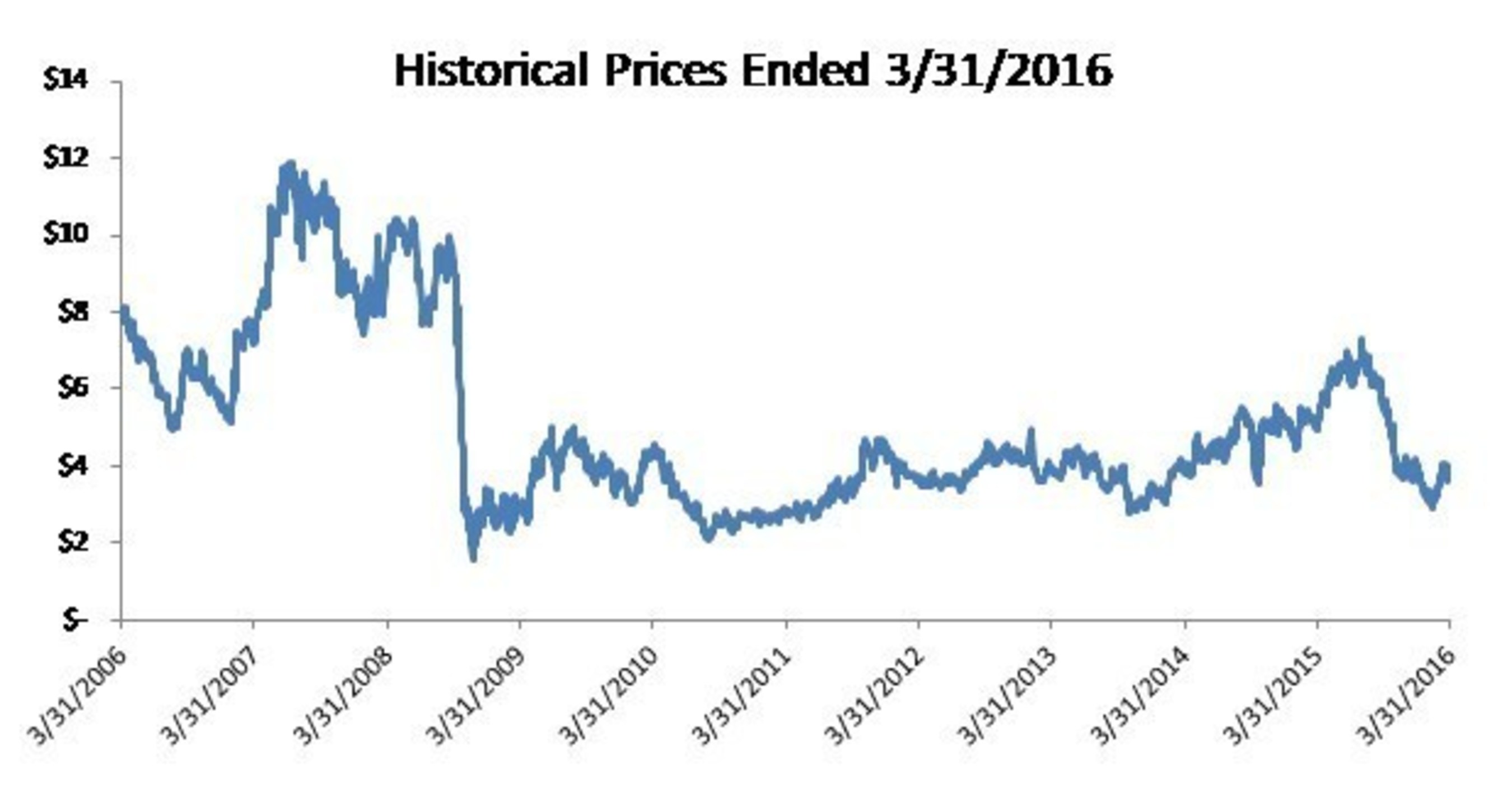
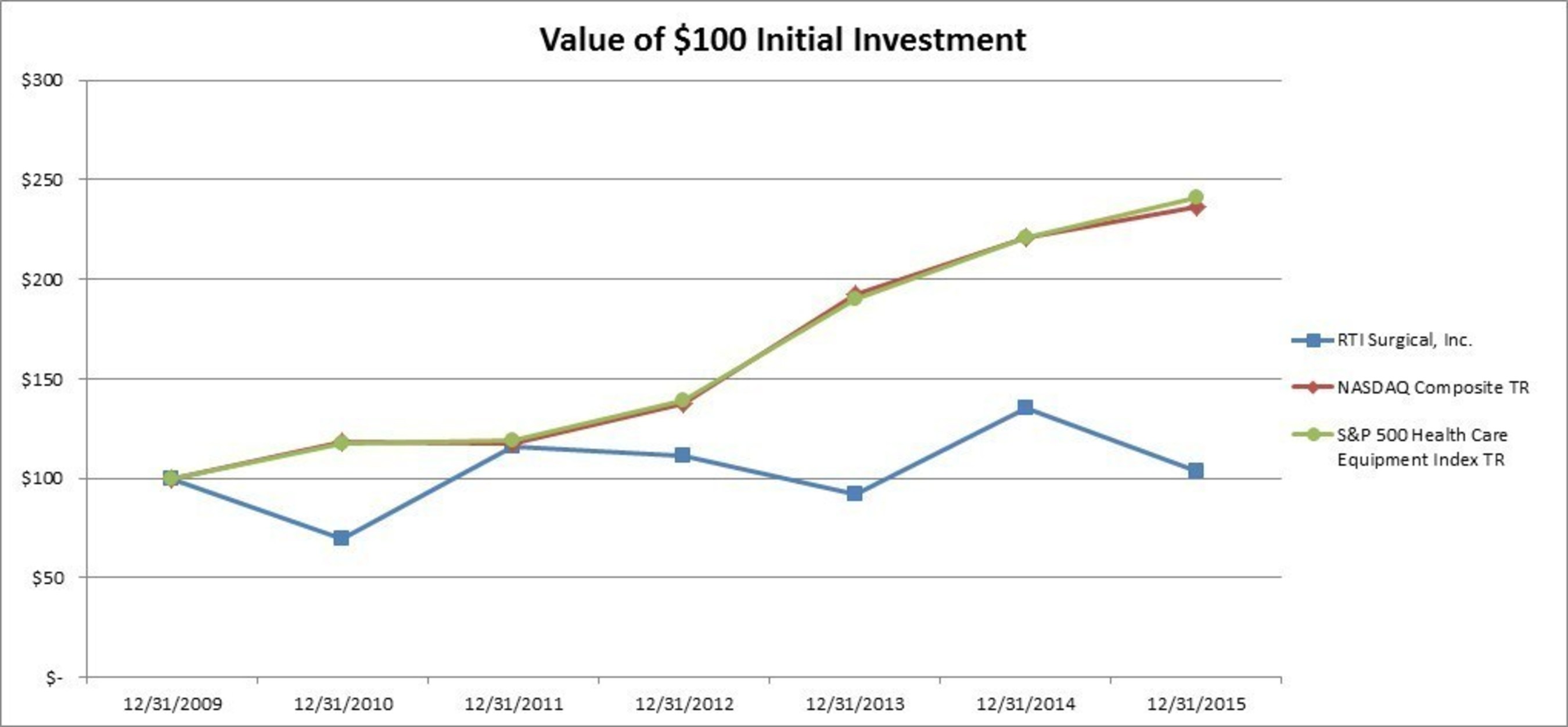

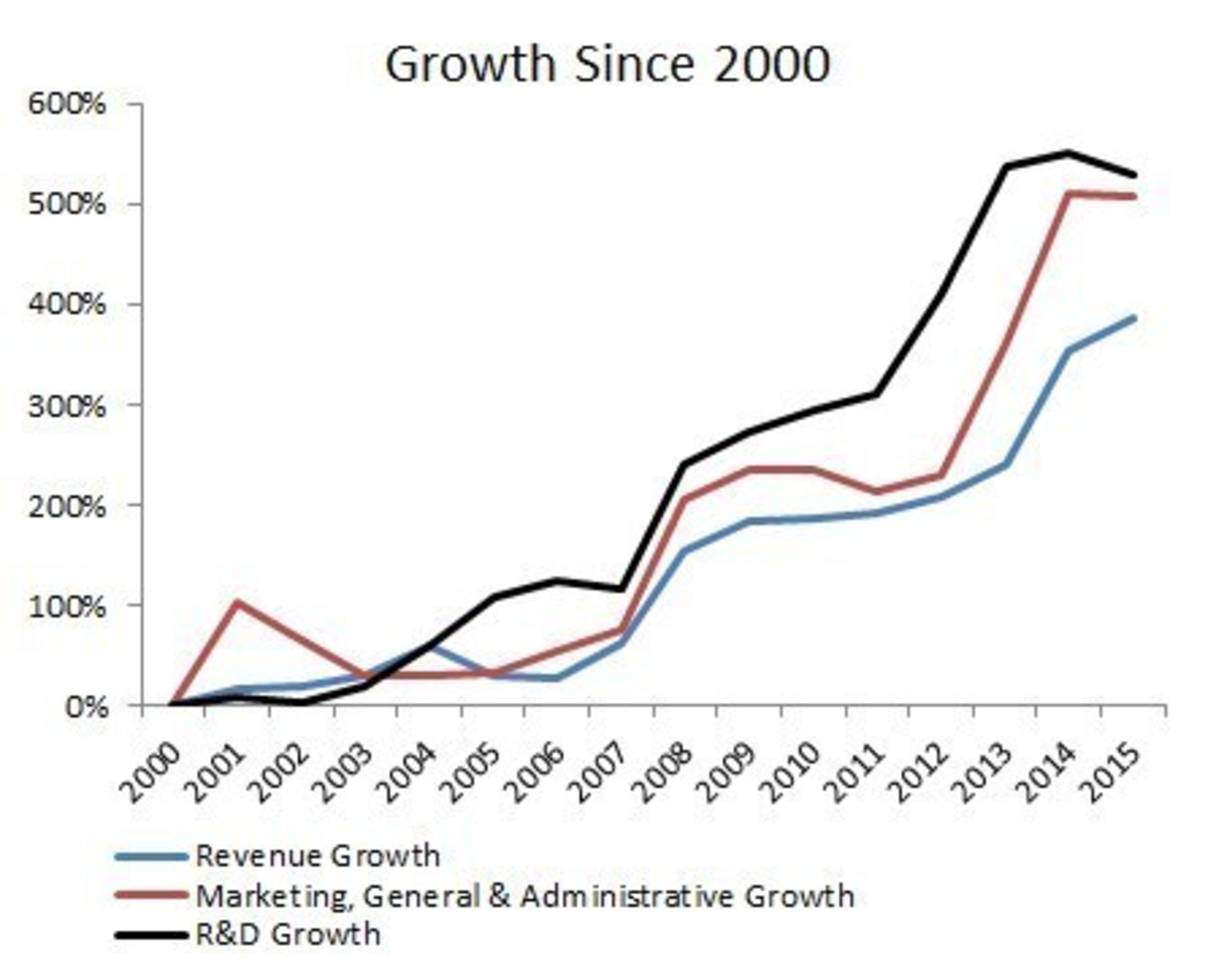
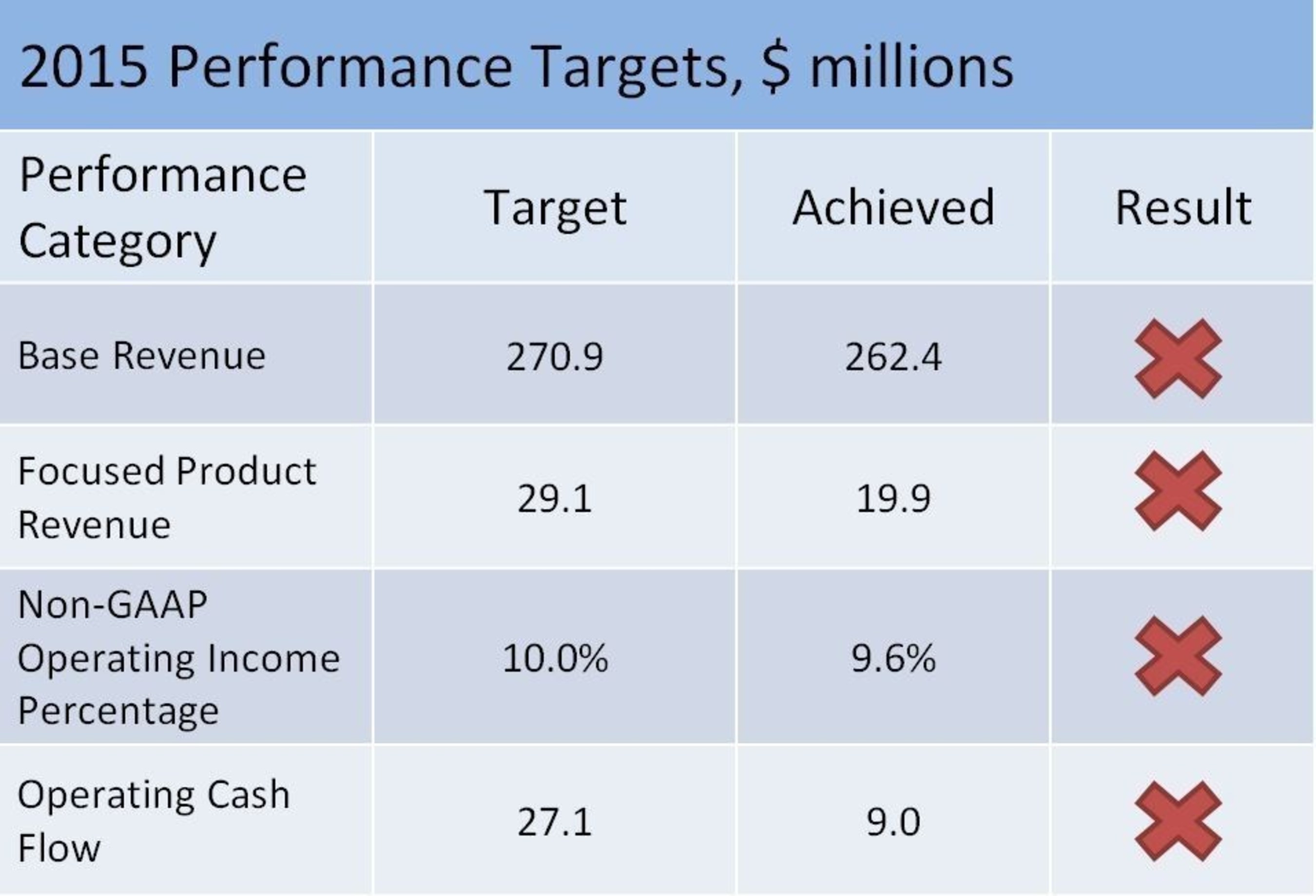

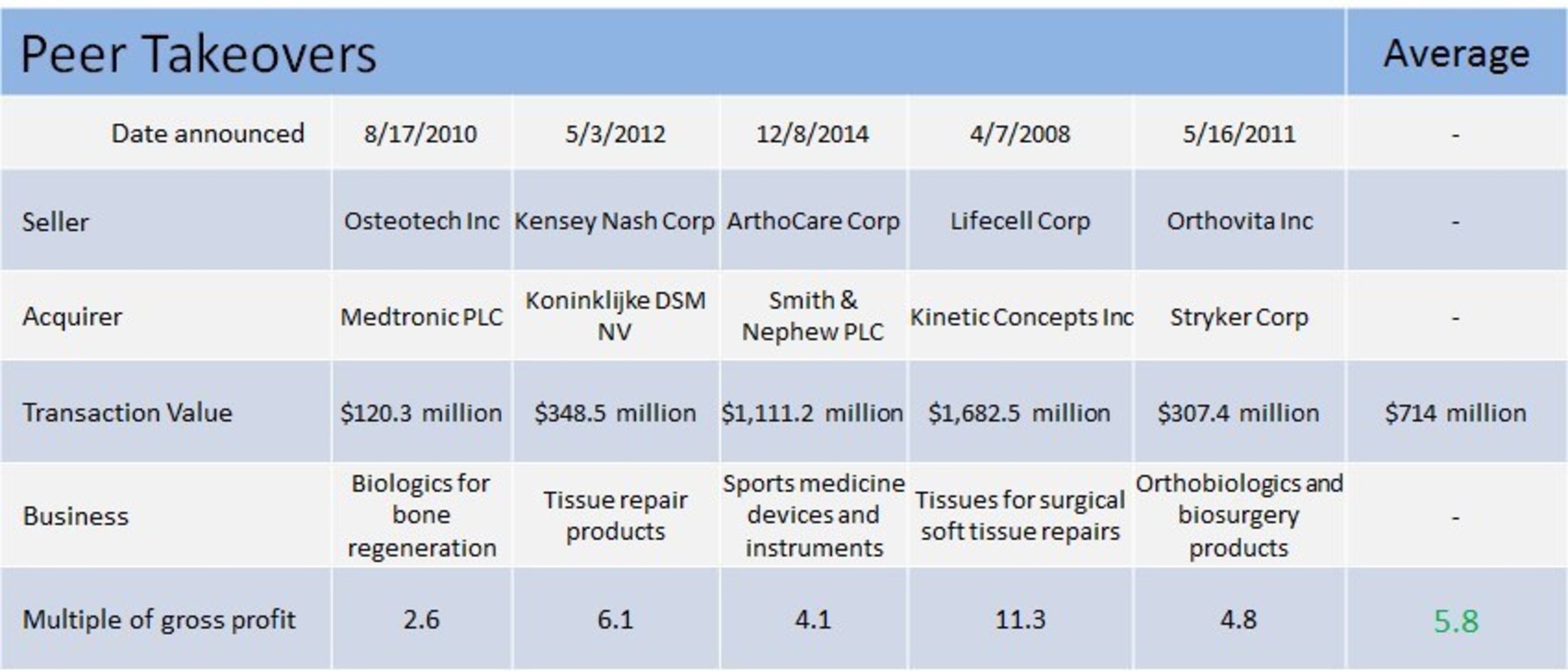
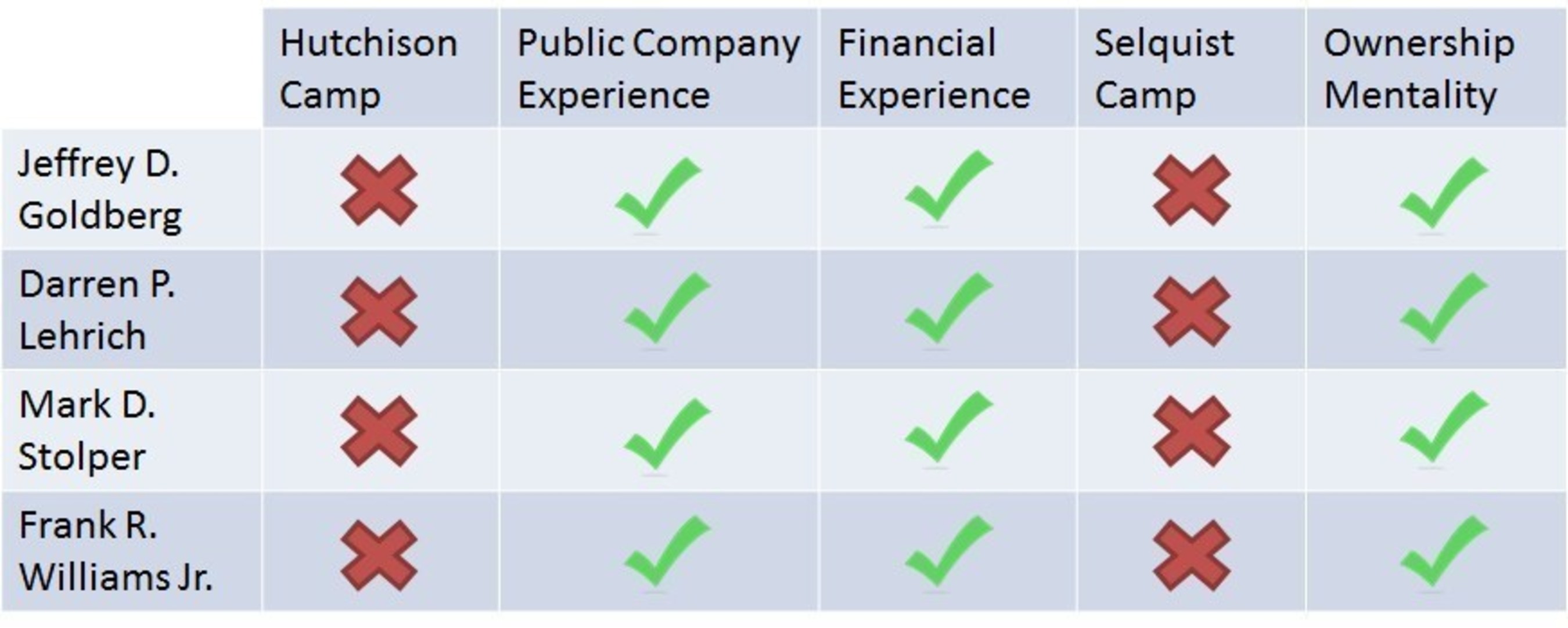



Share this article